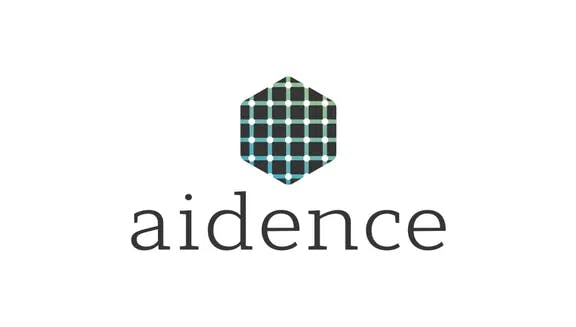
Aidence is improving cancer care with AI
10 July 2025

From apps that encourage healthier behaviour to robots that carry out surgery, artificial intelligence and machine learning are becoming a bigger part of healthcare as technology gets more sophisticated at treating patients. In fact, some can even do it more efficiently, quickly and at lower costs than regular medical professionals. Amsterdam startup Pacmed is exploring exactly how AI and machine learning can be used to help medical professionals do their job as efficiently as possible, by using applications to guide doctors to provide the best treatment possible for patients.
It all started in 2014, when Willem Herter, Wouter Kroese and Hidde Hovenkamp met while participating in the Dutch National ThinkTank. That year the focus was on how data can be used to make the Netherlands healthier. The trio identified a major healthcare gap: clinical decisions were often based on data from relatively healthy populations, rather than real-world patient data seen in hospitals. Herter explains: “Patient responses in clinical studies often differ from what we see in practice. We realised the vast amount of observational data generated between doctors and patients held untapped potential. Why not learn from it to improve healthcare?"
Thus Pacmed was born. Soon after, Herter, Kroese and Hovenkamp – all now directors of the firm - started to develop machine learning and AI models using this data, which includes everything from a patient’s medical history to the blood pressure that’s constantly monitored in an intensive care unit (ICU).

Thus Pacmed was born. Soon after, Herter, Kroese and Hovenkamp – all now directors of the firm - started to develop machine learning and AI models using this data, which includes everything from a patient’s medical history to the blood pressure that’s constantly monitored in an intensive care unit (ICU).
Wanting to show healthcare professionals exactly what the added value could be, Pacmed started building software to support practitioners in choosing the best treatment for patients with urinary tract infections. “A lot of people were talking about using AI and machine learning in healthcare, but we didn’t see many examples of it in practice, or where it already added value to the patient,” explains Herter. After more than 100 healthcare providers used Pacmed’s system during an implementation study, the startup is now developing algorithms and software to help treat diabetes, hypertension and kidney failure. It’s also using its research to make its systems fit as efficiently as possible into both a doctor’s and patient’s treatment process, keeping ethics in mind throughout all its decisions.

Pacmed Critical is their flagship AI platform designed for the ICU. It supports clinicians by providing real-time, data-driven insights that optimise ICU capacity and enhance patient outcomes. Pacmed Critical assists in three main areas:
Pacmed is also working on algorithms to support doctors and patients throughout hospital care, as well as systems that can help recommend treatment for patients. One model will help the Emergency General Practitioner's Center (huisartsenpost in Dutch) predict the actual urgency of a patient’s condition – which could help vastly reduce the number of people being sent for emergency care incorrectly and, in turn, save costs and time for medical practitioners.
“A problem that the emergency care units have is that they have seen a big increase in the number of patients that are classified as urgent, but a decrease in the number of patients actually in need of urgent care, so that creates a lot of pressure on emergency care doctors, and it impacts the quality of care.”
Another machine learning model is being developed to help assist doctors in making a discharge decision at an intensive care unit (ICU), reducing the chances of a patient being readmitted or developing more complications further into their recovery. Pacmed is now working hard to get these models into the implementation stage so they can see the results of their systems in practice.
"Working in AI in Amsterdam is very exciting. You have consortium and research groups – like the Big Data Alliance – and there are great professors of AI here, like Mark Hoogendoorn and Max Welling, who started Scyfer. The other founder of Scyfer, Jörgen Sandig, is working with us. In Amsterdam, there’s the opportunity to learn from academics, and there’s also a lot of great talent coming from universities and abroad.”

After starting with a modest investment from an innovation fund in 2015, Pacmed has been able to grow to its current size using its own revenue. Herter says it’s important for the firm to work only with parties with the same long-term view so it can develop and implement technology in healthcare responsibly. “We’re in this for the long run, thinking about how we can gradually grow and develop technology to sustain us for the next 10 or 20 years. Not having investors that are solely commercially minded, allows us to have a more long-term vision.” Looking to the future, Herter says that the biggest development in AI in healthcare that we’re likely to see in the next few years is its use in interpreting images from diagnostic machines – such as identifying tumours from MRI scans.”
For Pacmed, the future is seeing their applications in hospitals and GP practices, as well as helping patients and doctors alike. “For us, we’re transitioning from a project company to a product company. Projects don’t help patients, but products do. I don’t think that there are many companies that have our experience in AI in healthcare, so we want to share that knowledge on a broad scale, through scientific papers, meetups and blogs. By doing that, we become an AI thought-leader and help hospitals in the Netherlands to make their centres AI-driven, and so play a big part in how this technology influences healthcare in the future.”